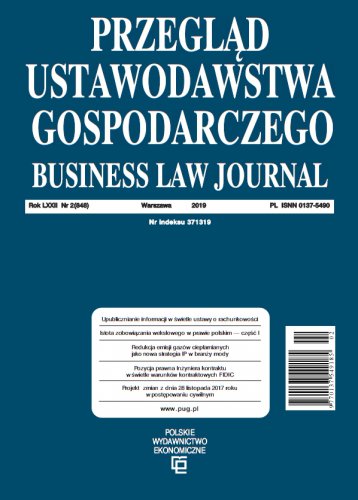Journal of Business Law 11/2021
ISSN: 0137-5490
Pages: 65
Publication date: 2021
Place publication: Warszawa
Binding: paperback
Format: A4
Publication date: 2021
Place publication: Warszawa
Binding: paperback
Format: A4
DOI: 10.33226/0137-5490.2021.11.1
JEL: K22, K33, K34
DOI: 10.33226/0137-5490.2021.11.2
JEL: K15, K20
DOI: 10.33226/0137-5490.2021.11.3
JEL: K32, H77, H81, Q42
The in dubio pro tributario principle in the jurisprudence of Polish administrative courts, s. 25-30
DOI: 10.33226/0137-5490.2021.11.4
JEL: K34, K14
DOI: 10.33226/0137-5490.2021.11.5
JEL: K34, K14
DOI: 10.33226/0137-5490.2021.11.6
JEL: K12, K29, K40
DOI: 10.33226/0137-5490.2021.11.7
JEL: K39
DOI: 10.33226/0137-5490.2021.11.8
JEL: K22, K29
DOI: 10.33226/0137-5490.2021.11.9
JEL: K12, K15, K22
| Odbiór osobisty | 0 € |
| Kurier Inpost | 4 € |
| Kurier FedEX | 4 € |
| Inpost Paczkomaty | 4 € |
| Free delivery in Reader's Club | from 47 € |

